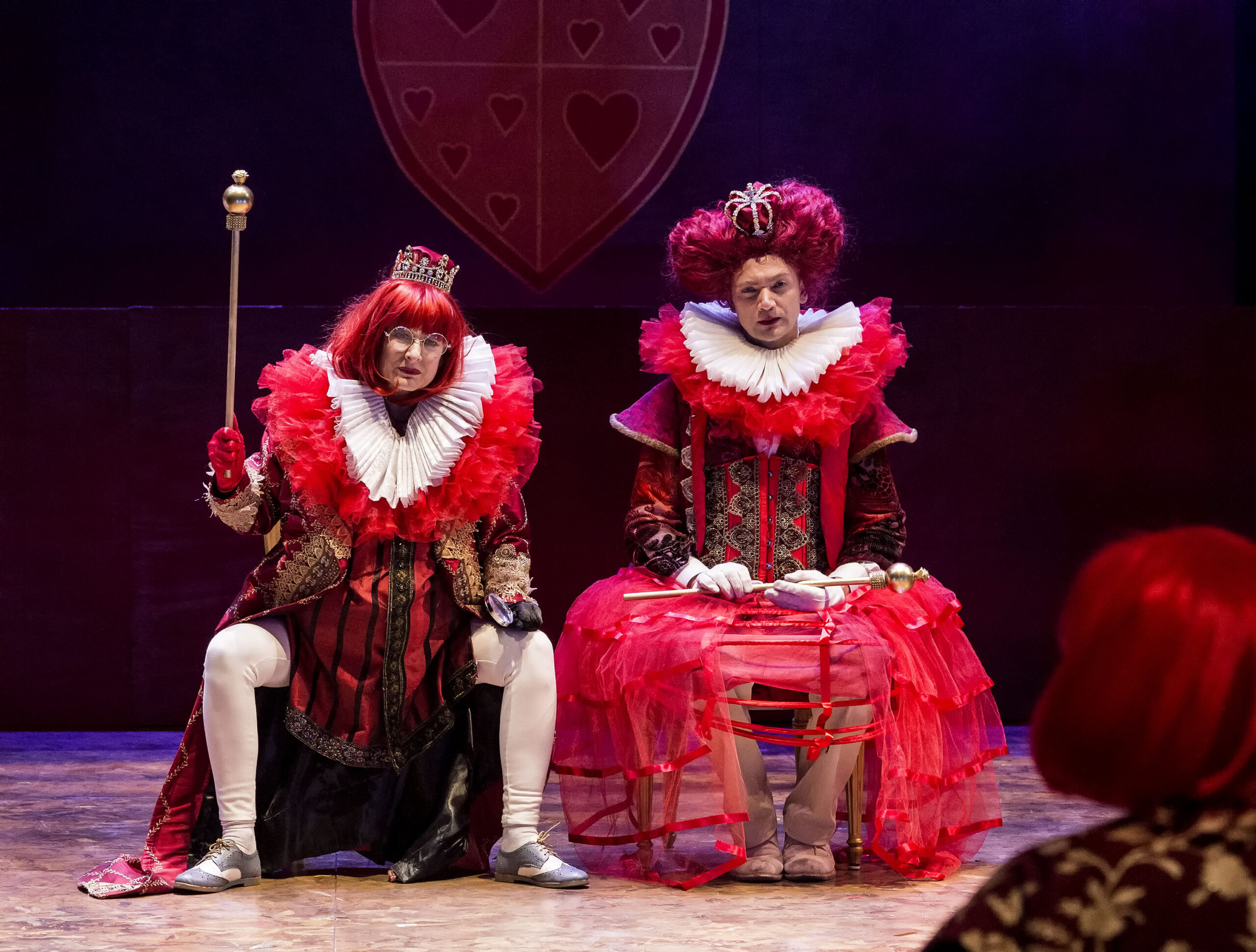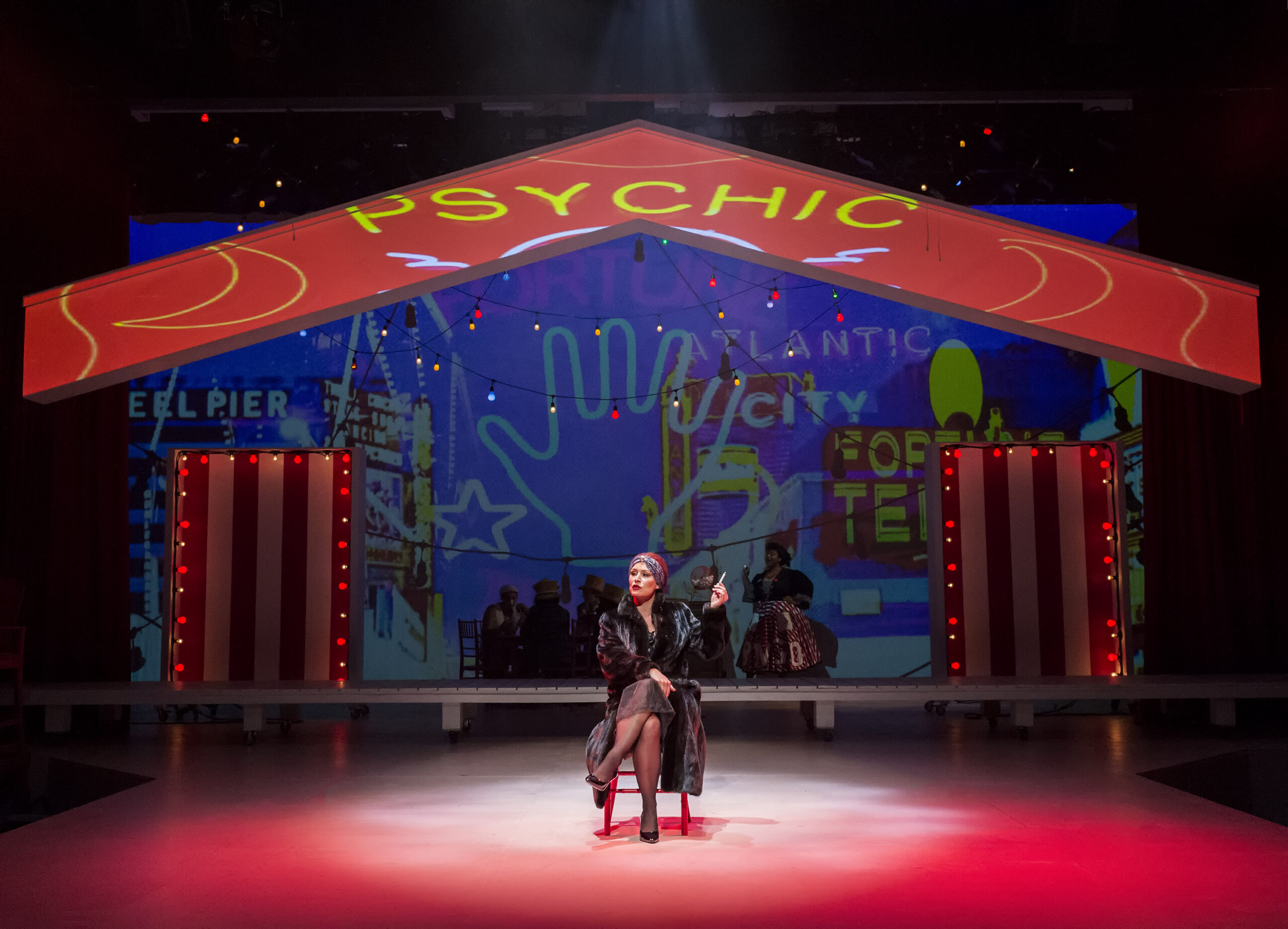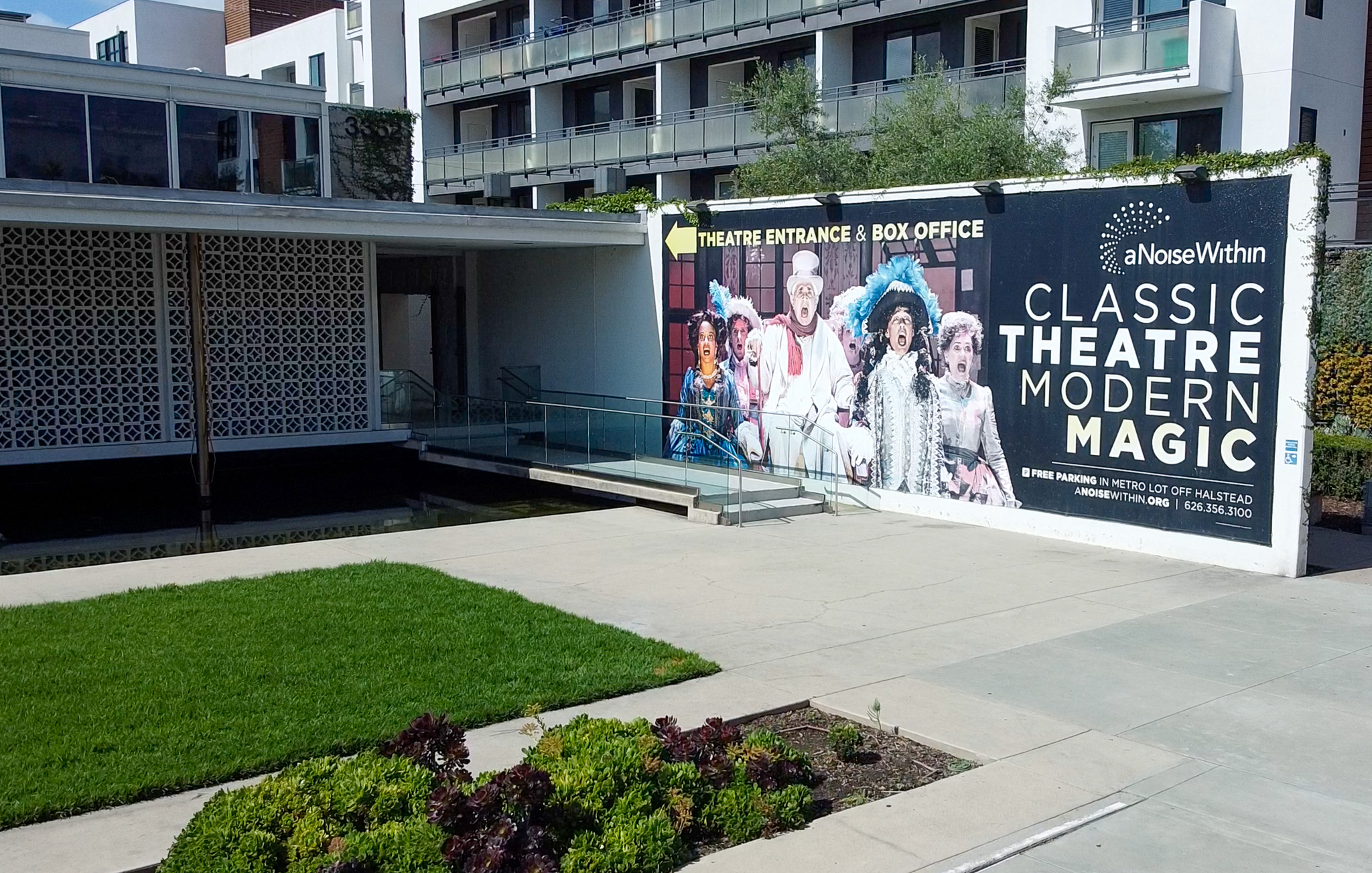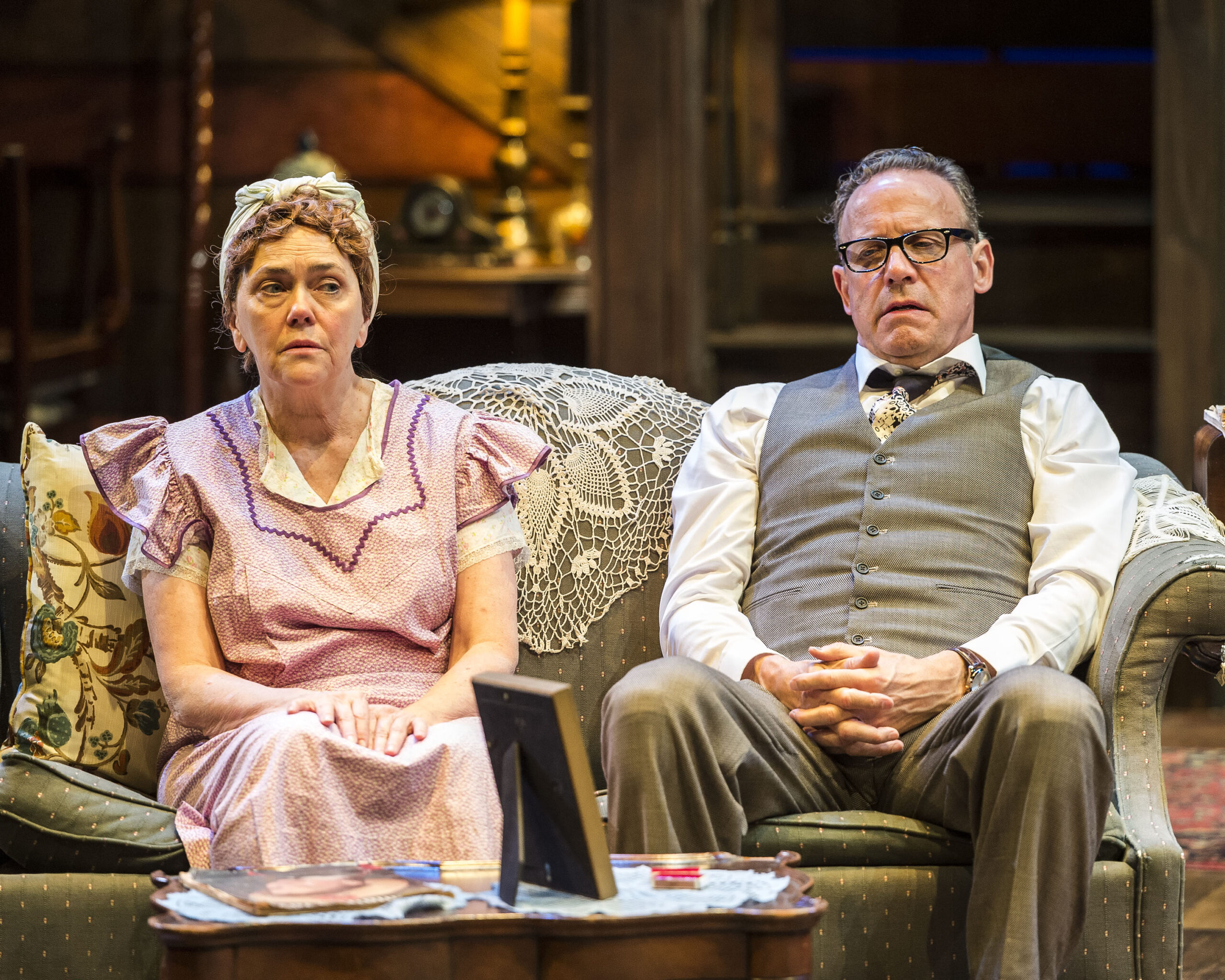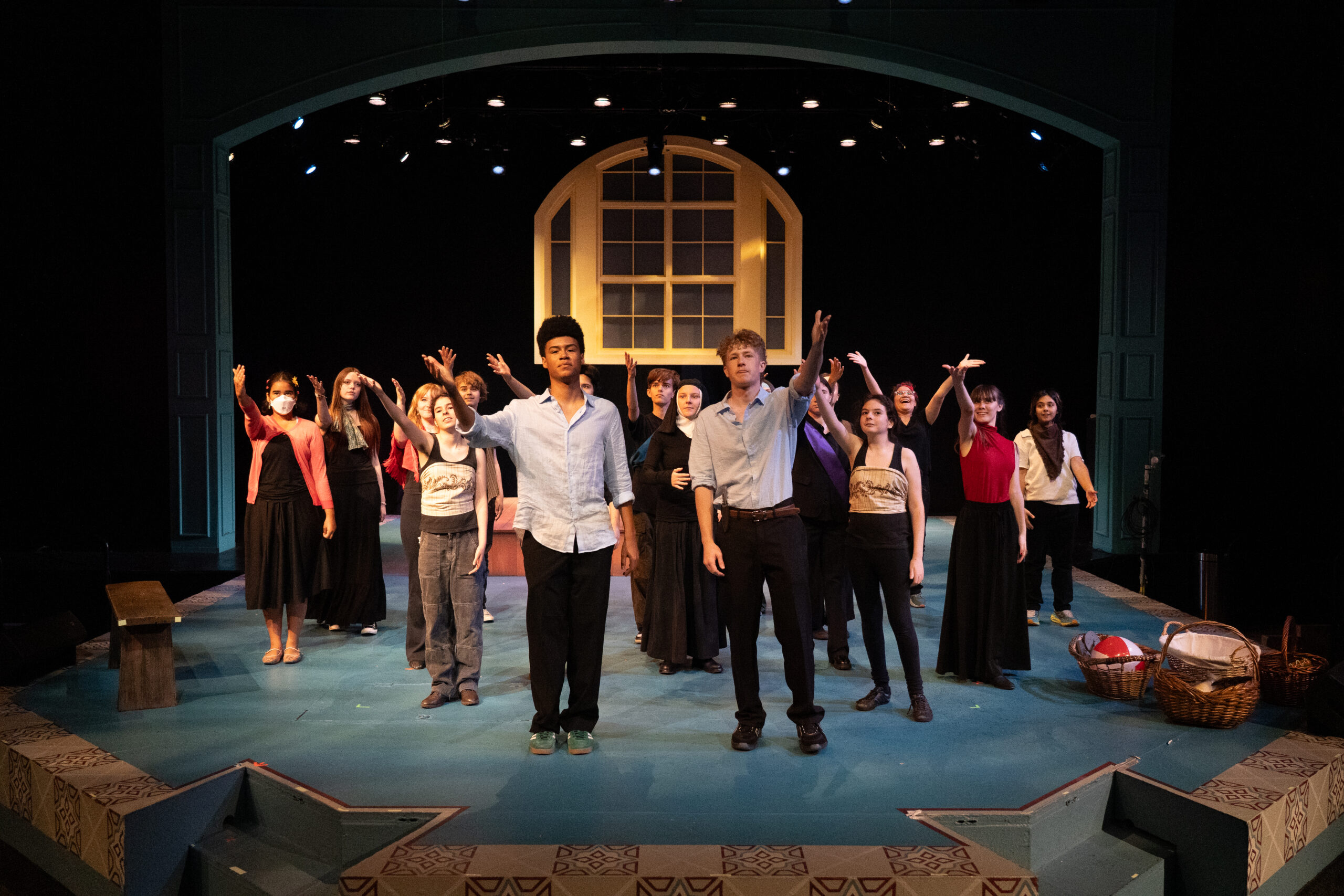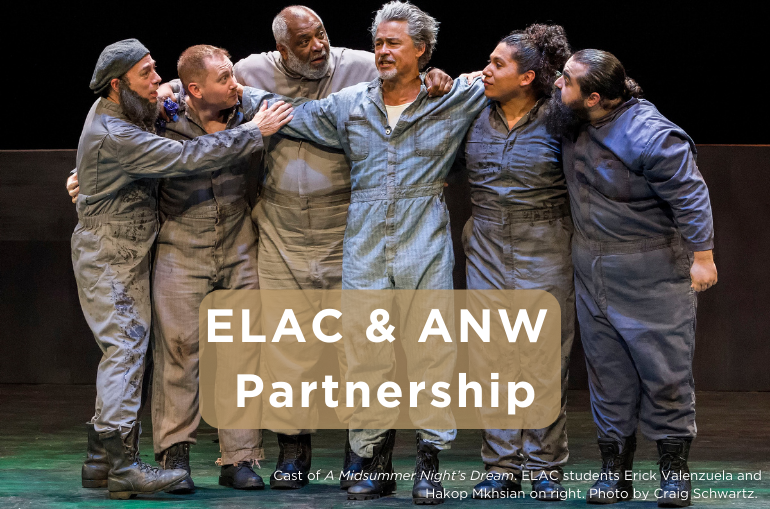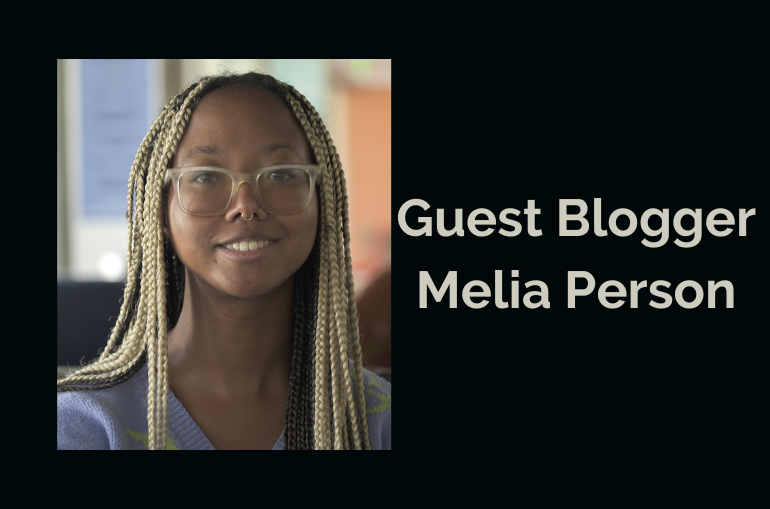Hispanic & Latinx Heritage Month Feature: Julia Rodriguez-Elliott
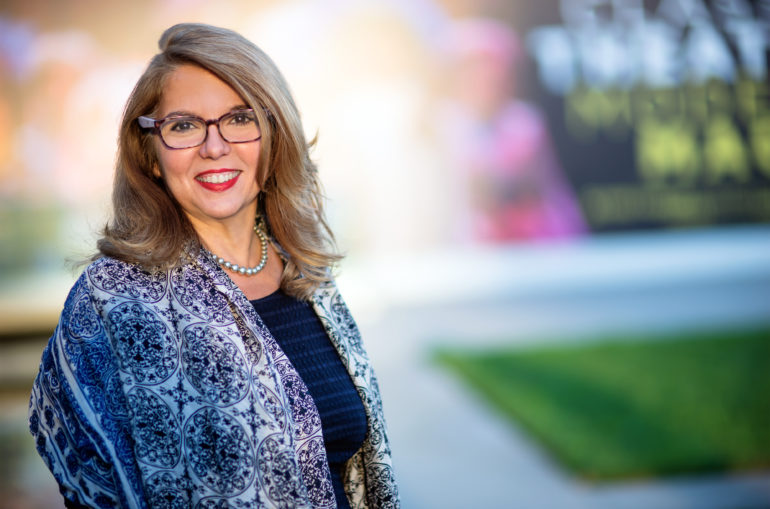
By A Noise Within
October 13, 2020
We are wrapping up our the Hispanic & Latinx Heritage Month celebration by spotlighting our very own founder and Artistic Director, Julia Rodriguez-Elliott! Read about how her work, culture, and life experience have culminated to where she is now as an arts leader.
How did you get started on your theatre journey?
I wasn’t officially involved in theatre until I was a senior in high school. Most of my background had been in dance. Then I found my tribe in my drama class.
I’m an only child, and so I think theatre started early for me. When you’re alone and you’re bored, you are always creating fantasies to keep you company—a sense of play. I used to put together productions for families and friends with found objects in the house and perform reenactments of films I’d seen. Whenever I had a birthday party, my cousins were forced to be a part of a performance. That was child play. Most of us lose it when we get older, but artists keep it close to their hearts and never lose that.
How did you end up at American Conservatory Theater?
I did undergraduate work in University of Florida in Gainesville as a theatre major. When I graduated, I didn’t feel like I had enough training for a professional career. I auditioned and was lucky to get into ACT. It was a very competitive program that took 48 students the first year. Then, they cut our class to 24 in the second year. There was immense pressure and stress around it. The first year of the program was American classics, and the second year was Shakespeare. Lots of people were cut after the first year without the complete training. I’m glad they don’t do that anymore.
As an undergraduate, I experienced Shakespeare for the first time at University of Florida with the Royal Shakespeare Company residency. They had a performance of Shakespeare’s love stories. It was the first time I’d seen Shakespeare live. It activated my senses in a way I hadn’t experienced before. I was outside the theater weeping because of how deeply it resonated with me.
After that experience, I wanted to enter the language, and so I remember I told my acting teacher that I wanted to do a Shakespeare monologue. Once I was done, he laughed. “You know, Julia, this is not a world for you.” At first, I thought it had to do with my ability or skill with the language, but I realized it had to do with who I was. He was telling me that a BIPOC artist didn’t have a place in Shakespeare. Because of who I was and where I came from, I didn’t have access. I could not accept that. Being BIPOC at ACT was not a barrier. I could do what I wanted as an artist. The opportunities to do the classics deepened my passion for them. I’m not sure what I would have done if I didn’t have that opportunity.
How did you get to where you are now as the founding artistic director of a theatre company? What challenges did you face on the way?
The challenges of going from an idea, impulse, or feeling to building an institution are monumental on all fronts. I had trained as an actor and, other than some good instincts, I didn’t know the first thing about building a company.
I started my career a performer. At first, I had no interest in being a director. Early in the ANW journey, we had a director drop out of our production of Our Town, and Geoff and I stepped in to co-direct. That’s when I fell in love with directing. I found my place. Directing combined what I loved as a child: creating worlds; doing things that can’t be done in any other medium; telling stories through movement. I realized I had no interest in performing anymore, but I knew what that process was like, so I could talk to actors in a way that was relatable. ANW took me from being an actor to a director.
So, you would never act or dance again?
No, I don’t think so. There isn’t any part of it that I miss.
How does your culture, family background, and history influence your work?
They make a big part of how you see the world. For me, the immigrant experience is in my DNA. The strong feeling of community and the desire to be a part and to belong. I think about how my particular culture lives, loves, and celebrates. I remember a reviewer said my productions had an element of “carnival” to them—which wasn’t a compliment. But when you think about it, I guess that is a part of how I see the world. A fighting spirit was also part of my culture and my family.
Recently, I went to a dinner party with friends, and the question was “What did your room look like as a child?” As an only child, I grew up around a lot of older people. I shared a room with my unmarried aunt. She was considered an “old maid” (in those days—she was probably 50). I was her confidant, and she would share about the men in her life and the drama of love. She was hilarious and over the top. Part of my wicked sense of humor comes from having spent days and nights with her as an odd couple. I’d go on dates with her because she wanted a chaperone. These guys would come and bring me big boxes of candy and gifts while I was a chaperone. She had fabulous skin creams and makeup kits. At least once a month, she would have a meltdown, sobbing and saying “I’m never gonna love again!” She gave me a very particular view of the world that comes in very handy when directing comedies.
What did your parents think about you pursuing a career in theatre?
My parents didn’t approve. They told me: “You’re such smart girl. You could do so many other things.” They had concerns about the economics. They thought there was more I could do with my life than to join the circus. Over time, they understood the impulse. Both of them died in the early days of ANW, but I believe there was pride there.
Out of all your accomplishments in theatre, what are you most proud of?
The opportunity to direct is something I’m grateful for. I think that we took this organization from a seedling of a dream to this institution is amazing. Knowing that there’s a place that will be here beyond the two of us.
Who is your favorite Latinx author/playwright? Or alternatively, what’s your favorite Latinx play?
So many great ones. I love Luis Alfaro’s work. Because I’ve been reading a lot of his plays during the pandemic, I’d also say Nilo Cruz, the Cuban playwright. His work is so close to Cuba, and his mixing of part memory, part myth was something I grew up with as a Cuban person. His plays are very sensual. The sense of loss and longing and the will to survive resonates with someone Cuban born. His plays appeal to me from a theatrical standpoint and on a personal standpoint. I recognize these people. I think he really captures that part of the Cuban experience.
Do you have any advice for fellow Latinx artists who are starting out?
Not anything that’s different from what I’d tell any artist. I am a major advocate of good training. For me, it made such a difference to dedicate a certain time in my life for theatre to be my sole focus. It gives you a leg up. I encourage people to create their own work. Be the master of your own fate. You might not make a lot of money, but you are learning and growing as an artist.
Anything else you’d like to share about directing?
I love the idea that you get to create an entire world. It’s scary and thrilling at the same time. Creating a world and making it comes to life is very satisfying. As a director, you can look at the big picture. As an actor, you just look at your trajectory as a character. The collaboration with the artists—actors and designers—is also satisfying as the story reveals itself. You have notions, but you don’t know a play will be until it gets on its feet in rehearsal.
